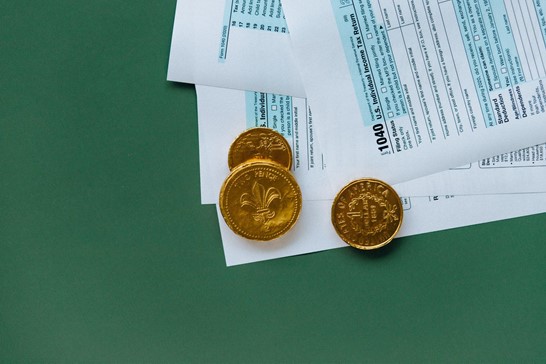Millions of people use monetary transaction applications like PayPal, Venmo, and CashApp. They are going to be the target of the new IRS policy that will be implemented in 2022.
CashApp allows business owners to receive unlimited money through their business accounts. The platform charges 2.75% per transaction. When an individual uses a cash card linked to their in-application balance to make a payment. If you are one of the people who use CashApp for business transactions. This new rule might make you see lower net income starting next year.
What Is the New IRS Tax Rule that Affects CashApp Business Transactions?
The IRS has added a new rule in the books for businesses receiving payments using cash apps without paying taxes on them. The new tax rule, which was released under the Biden American Rescue Plan. That will allow IRS to look closely at businesses for transactions above $600.
An event where a personal payment takes place through a P2P app is not considered taxable, no matter the amount. However, using these apps to carry out business transactions is subject to the tax rule application.
Similar to cash payments, App payments are hard to track, which allows easy tax evasion by businesses. However, now the apps like CashApp will report to the IRS for the businesses receiving transactions amounting to above $600 on aggregate per annum.
Technically, the rule is not new. In fact, people are already required to report to IRS when their income rises above $600. Before this, the IRS tax policy applied to cash applications when the businesses with at least 200 transactions per year. And the payments received hit the $20,000 mark. Due to people avoiding this rule on a national level, the rule is enforced on cash apps. Thus, lowering the figure when reporting to the IRS.
The main aim of this tax rule affecting the cash apps business transactions is to bring into account the unreported taxable incomes.
How Does It Affect Me?
When asked who is directly affected by this rule, Scott Talbott, the spokesperson for the Electronic Transaction Association, said, “those who are tax evaders, who violated the self-reporting rules and utilized the old thresholds to avoid paying taxes.” According to this statement, you should only be worried about this rule if you use an electronic cash transaction app and have not reported all of your business income.
However, the tax experts say that lowering the benchmark means that even tax filers, personal use accounts, and self-employed workers who use cash apps for both personal and business purposes may face inconvenience.
Mark Luscombe, the principal analyst for tax publisher Wolters Kluwer Tax & Accounting, said, “These third-party settlement entities may not know for sure if they are dealing with a business or an individual or if they are dealing with payment for goods or services, or a non-taxable transaction. It is going to be up to the taxpayer. If they receive a 1099-K Form in any form for a non-taxable event. Such as splitting rent among roommates, splitting a dinner bill, or even selling something on eBay for less than you paid for it. To explain to the IRS that the 1099-K Form was received for a non-taxable transaction.”
What do Should I Do?
Initially, for CashApp users, there is a possibility that your business transactions might be reported twice. If you are self-employed, you might receive a 1099-K form from your payment app and a 1099-NEC or 1099-MISC Form from your client for the same transaction. Mark Luscombe emphasized that this will require you to hassle with the IRS to explain that both forms are for the same transaction.
It is up to the service provider, whether PayPal, CashApp, Stripe, etc. To decide which approach they want to take to incorporate the new tax rule in their system. Once they have worked out their administrative changes. You will not be challenged with the trouble of two forms for one transaction. Then it is the service provider’s responsibility to inform their users about the change. As well as, how it affects their daily transactions.
How Is the Systematic Application of the new IRS Policy?
The required step to impose this rule on you go through the CashApp service provider. Your service provider will issue a 1099-K IRS form in your name after you have crossed the $600 mark. However, you could be issued a 1099-K Form for a payment made to you on a personal basis that reports as a non-taxable event. If that happens, you will have to identify to the IRS that a particular payment does not account for your business income.
On the contrary, there could be times when you don’t receive a 1099-K Form. That is when you need to remember that you are legally and morally liable to report a taxable income received through the app.
Final Thoughts
Even though the new IRS policy can create confusion for some CashApp account holders, it is better for everyone in the longer run. IRS would have more visibility in business transactions that owe taxes to the public and increase wealth equity. The foreseeable change, according to Luscombe, is that the cash apps account holders will start using the service strictly for larger amount transfers. And not for smaller or personal payments.
Business owners can benefit from this change as the tax rule will help keep their income audited. The audited income will remain as a record of their taxable and non-taxable income. We recommend that the business owners consult their tax professionals. So, they can set themselves up for the upcoming change, and reel the maximum benefit.


